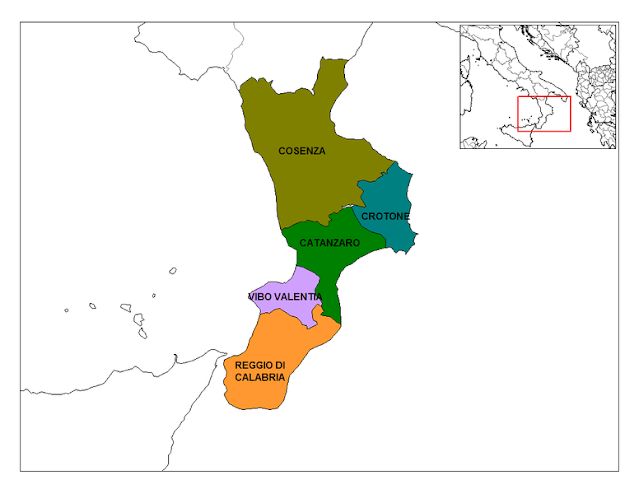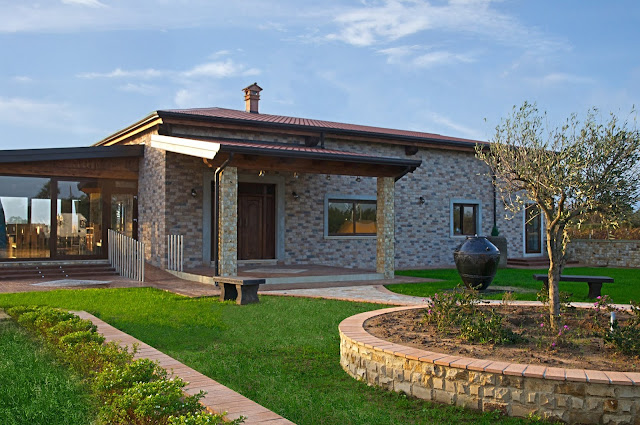Calabria is one of the regions in Italy that slips under the radar and understandably so for various reasons. It’s one of Italy’s smaller wine regions and produces a small number of wines annually that aren’t largely exported. At one point in time Calabria’s wine scene was very respectable, but after phylloxera hit this region in the 19th century, along with much of Europe, the region never seemed to fully bounce back. Thankfully there are several winemakers looking to revolutionize the wine industry for Calabrian wines to bring quality wines to market that set the identity for what Calabria is capable of. Unfortunately, due to the expensive infrastructure to put in place for producing wine on a larger scale it limits many of the smaller producers in the region.
Where is Calabria?
Calabria is at the southern toe of the boot before the mainland extends into Sicily. It’s a rural, mountainous region with the Apennines bordering Basilicata to the north. This area has a Mediterranean climate that is warm and mild with the influence of the surrounding seas. There is plenty of coastline in Calabria with the Tyrrehnian Sea to the west, the Ionian Sea to the east and the Strait of Messina that separates Calabria from Sicily. The region receives a low amount of rainfall, so irrigation is of importance.
Calabria’s economy
The economy of Calabria is based on citrus fruits, various grains, olive oil and vegetables with vineyards making up a small part of the economy. Calabria is also known for their red onions from Tropea, chili peppers and nduja, a local salami. Vines were cultivated there by the ancient Greeks and became known as the “enotria” meaning the land of wine due to its rich viticultural past.
The wine of Calabria
If you’re a red wine lover, then Calabria is for you to explore. About 90% of the wine production in Calabria is based on red wine. The red grape, Gaglioppo, is the primary grape with an increasing amount of Magliocco. You will also find other red grapes including Greco Nero and Nerello Calabrese. Although white grapes take the back seat in Calabria, Greco Bianco and Mantonico are the most prevalent along with Guarnaccia and Pecorello. Greco Bianco is the second largest planted grape after Gaglioppo and is a sweeter wine named after the town of Bianco.
 |
| Sourced from Consorzio Vini Cirò e Melissa |
Calabria does not have any DOCGs in the region, but has 12 DOC’s that surprisingly only make up about 4-5% of the overall production. By far the oldest and best-known appellation that puts Calabria on the map is the Cirò DOC. This area is in the Crotone province along the Ionian coast in the eastern foothills covering the plains to the inland hillsides. This area was established in 1969 and makes medium to full-bodied reds primarily from the Gaglioppo grape displaying red fruits and spices. Depending on whether you have a Cirò Rosso, Cirò Rosso Classico Superiore or Cirò Rosso Classico Superiore Riserva will determine the quality and characteristics of the wine. Librandi is the trailblazing producer that will be the easiest to seek out for wines that are mostly exported from this region. They’re highly influential for reviving native grapes and experimenting to improve the reputation for quality Calabrian wines.
Other DOC’s that may be a challenge to locate, but worth noting are the Melissa DOC, Terre di Cosenza DOC and Bivongi DOC. The Melissa DOC is only about 30 minutes south of the Cirò DOC sharing a similar climate, terrain and primarily based on Gaglioppo. The Terre di Cosenzo DOC is a region to keep an eye on with many young winemakers working hard to increase quality. The Bivongi DOC is the newest and smallest, but much of the wine is enjoyed locally so if you’re in the area take this chance to experience these wines as you may not elsewhere.
If you're interested in taking a look at the Librandi wines or others from the region give them a search on Wine.com.
*I may receive commissions if any wines are purchased directly from this buyer to support the operations of Vino Travels.



